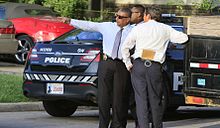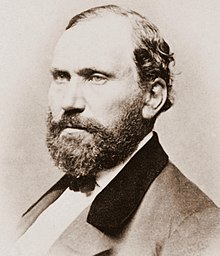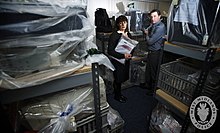Detective
| |||||||||||||||||

Sihali Kalan is a small village in the gram panchayat of Sihali Khurd, Mundawar tehsil, Alwar district, Rajasthan, India. It is 10 km from Mandawar and 60 km from Alwar. The nearest town of any size is Khairthal, 19 km away. In the 2011 census the village had a population of 1,261 in 234 households.[1] The local language is Rajasthani. The two main political parties, as nationally, are the INC and the BJP. Temple of Baba Kundandas Ji Maharaj The area of the village is 561 hectares.[1…

ブルックラディ蒸留所Bruichladdich Distillery 地域:アイラ所在地 アイラ島所有者 レミーコアントロー創設 1881年[1]現況 稼働中水源 丘の上の貯水池[2]蒸留器数 初留器2基[3]再留器2基[3]ローモンドスチル(英語版)1基[4]生産量 150万リットル[注釈 1][2]使用中止 1929-1936, 1995-2000[注釈 2][1]ブルックラディ / Bruichladdich種類 シングル…

Nota: Para outros significados, veja Nespereira (desambiguação). Nêspera Nêspera Classificação científica Reino: Plantae Filo: Magnoliophyta Clado: eudicotiledóneas Clado: rosídeas Ordem: Rosales Família: Rosaceae Subfamília: Maloideae Género: Eriobotrya Espécie: E. japonica Nome binomial Eriobotrya japonica(Thunb.) Lindl. A Eriobotrya japonica[1], comummente conhecida como nespereira[2] (não confundir com a espécie Mespilus germanica, que consigo partilha este nome), é uma…

Nigerian political drama film SaworoideFilm posterDirected byTunde KelaniWritten byAkinwunmi IsolaProduced byTunde Kelani Yemi ShodimuStarringKola OyewoBukky WrightLere PaimoLarinde AkinleyePeter FatomilolaKunle BamtefaAdebayo FaletiKayode OlaiyaDoyin HassanCinematographyTunde KelaniEdited byKehinde Aje Musediq Alayaki Noah AkinmadeMusic byOrlando JuliusProductioncompaniesMainframe Films and Television ProductionsDistributed byMainframe FilmsRelease date 1999 (1999) Running time105 minutesC…

Former industrial railway in Victoria, Australia Former Fyansford locomotive No. 4, hauling a tourist train at the Bellarine Railway in 2007 The Fyansford Cement Works Railway was an industrial railway near Geelong, Australia, built by the Australian Portland Cement Company to carry limestone from its quarry to its cement works at Fyansford. The railway was notable for including a 1.3 km (0.81 mi) tunnel, the longest rail tunnel in Victoria, apart from the underground sections of the M…

49. Mistrzostwa Europy w Judo – zawody sportowe, które odbywały się 20 i 21 maja 2000 roku we Wrocławiu (Polska). Turniej drużynowy rozegrano 18 i 19 listopada w Aalst. Mężczyźni Konkurencja Złoto Srebro Brąz -60 kg Elçin İsmayılov Éric Despezelle Cédric Taymans Nestor Chergiani -66 kg Patrick van Kalken József Csák Girolamo Giovinazzo Georgi Georgiew -73 kg Michel de Almeida Witalij Makarow Ferrid Kheder Giorgi Rewaziszwili -81 kg Sergei Aschwanden Ricardo Echarte Aleksei Bud…

Late 19th-century Korean reforms Gabo ReformOfficials of GungukgimucheoDate1894-1896 Gabo ReformHangul갑오개혁Hanja甲午改革Revised RomanizationGabogaehyeokMcCune–ReischauerKabogaehyŏk The Gabo Reform, also known as the Kabo Reform, describes a series of sweeping reforms suggested to the government of Korea, beginning in 1894 and ending in 1896 during the reign of Gojong of Korea in response to the Donghak Peasant Revolution. Historians debate the degree of Japanese influence in this p…

1985 video game 1985 video gameRomance of the Three KingdomsDeveloper(s)KoeiPublisher(s)KoeiComposer(s)Yoko KannoPlatform(s)PC-88, PC-98, MSX, Nintendo Entertainment System (1988), Amiga, MS-DOS, FM-7, Sharp X1, Sharp X68000, WonderSwan, Windows (2003), mobile phonesRelease1985Genre(s)StrategyMode(s)Single-player, multiplayer Romance of the Three Kingdoms, known as Sangokushi in Japan, is a 1985 video game published by Koei. It is the first game in the Romance of the Three Kingdoms series. Origi…

Masjid Sheikh Abdul Hamid, salah satu cagar budaya di Kalimantan Selatan. Papan penanda cagar budaya Masjid Sheikh Abdul Hamid Masjid Sheikh Abdul Hamid atau biasa disebut Masjid Datu Abulung adalah salah satu masjid tertua di provinsi Kalimantan Selatan, Indonesia, yang berlokasi di desa Sungai Batang, kecamatan Martapura Barat, Kabupaten Banjar.[1] Masjid ini dibangun oleh Raja Banjar, Sultan Tahmidullah II yang memerintah periode 1761-1801 sebagai bentuk penebusan dosa karena telah me…

Meinhard Simon du Pui Meinard Simon du Pui auch: Menrad, Meinhardus Simon du Puij; (* 21. März 1754 in Enkhuizen; † 14. Juni 1834 in Leiden) war ein niederländischer Mediziner. Leben Der Sohn des Mediziners und Stadtrates in Enkhuizen Peter du Pui hatte die Schulen seiner Heimatstadt und die Lateinschule in ’s-Hertogenbosch besucht. Er immatrikulierte sich am 12. September 1771 an der Universität Groningen, wo er unter anderem die Vorlesungen der griechischen und lateinischen Literatur be…

Questa voce sugli argomenti parlamenti e Brasile è solo un abbozzo. Contribuisci a migliorarla secondo le convenzioni di Wikipedia. Segui i suggerimenti del progetto di riferimento. Congresso nazionale del Brasile Edificio del Congresso nazionale, Brasilia Stato Brasile TipoBicamerale Camere Senato federale Camera dei deputati Istituito6 maggio 1826 Presidente del SenatoRodrigo Pacheco (PSD) Presidente della CameraArthur Lira (PP) Ultima elezione2 ottobre 2022 Prossima elezione2026 Nu…

Outdoor amphitheatre in Wantagh, New York, U.S. Northwell Health at Jones Beach TheaterThe BeachThe exterior of Jones Beach Theater, c. 2007Former namesNew Jones Beach Marine Stadium (1952–1953)Jones Beach Marine Theater (1954–1994)Jones Beach Amphitheater (1994–2000)Jones Beach Theater (2000–2002)Address1000 Ocean ParkwayWantagh, NY 11793-4800LocationJones Beach State ParkCoordinates40°36′04″N 73°30′08″W / 40.60101°N 73.50232°W / 40.60101; -73.5…

This article has multiple issues. Please help improve it or discuss these issues on the talk page. (Learn how and when to remove these template messages) This article is an orphan, as no other articles link to it. Please introduce links to this page from related articles; try the Find link tool for suggestions. (December 2015) This article relies excessively on references to primary sources. Please improve this article by adding secondary or tertiary sources. Find sources: Seoul Tourism Awa…

Hj. Titiek PuspaTitiek pada tahun 1963LahirSudarwati1 November 1937 (umur 86)Tanjung, Tabalong, Kalimantan Selatan, Hindia BelandaKebangsaanIndonesiaNama lainKadarwatiSumartiTitiek PuspaPekerjaanPemeranpenyanyimusisiTahun aktif1950—sekarangSuami/istri Zainal Ardi (m. 1959; c. 1961) Mus Mualim (m. 1970; c. 1990) Anak2Situs webwww.titiekpuspa.comTanda tangan Hj. Sudarwati (lahir…

1549 painting by Titian You can help expand this article with text translated from the corresponding article in Spanish. (August 2011) Click [show] for important translation instructions. View a machine-translated version of the Spanish article. Machine translation, like DeepL or Google Translate, is a useful starting point for translations, but translators must revise errors as necessary and confirm that the translation is accurate, rather than simply copy-pasting machine-translated text i…

Filipino accountant and politician (1961–2021) In this Philippine name, the middle name or maternal family name is Porlares and the surname or paternal family name is Aquino. Ronaldo AquinoRonaldo Aquino in 2018Mayor of CalbayogIn officeMay 2, 2011 – March 8, 2021Preceded byReynaldo UySucceeded byDiego RiveraVice Mayor of CalbayogIn officeJune 30, 2004 – May 2, 2011In officeJune 30, 1995 – June 30, 2001 Personal detailsBornRonaldo Porlares Aquino(1961-…

Menteri Luar Negeri, Persemakmuran, dan Pembangunan Britania RayaSecretary of State for Foreign, Commonwealth and Development AffairsLambang Kerajaan yang dipakai oleh Pemerintah Britania RayaPetahanaDavid Cameronsejak 13 November 2023 (2023-11-13)Kantor Luar Negeri, Persemakmuran, dan PembangunanGelarThe Right Honourable(di Inggris dan Persemakmuran)His Excellency(di kalangan mancanegara)[1]Foreign Secretary (informal)AnggotaKabinetDewan PenasihatDewan Keamanan NasionalAtasanP…

American rock band This article needs additional citations for verification. Please help improve this article by adding citations to reliable sources. Unsourced material may be challenged and removed.Find sources: Antigone Rising – news · newspapers · books · scholar · JSTOR (March 2007) (Learn how and when to remove this template message) Antigone RisingAntigone Rising in 2012 (l-r): Kristen Henderson, Dena Tauriello, Cathy Henderson, Nini CampsBackgroun…

Shopping mall in Alexandria, VirginiaLandmark MallMall interior, 2015LocationAlexandria, VirginiaCoordinates38°48′58.3″N 77°7′54.1″W / 38.816194°N 77.131694°W / 38.816194; -77.131694AddressDuke St., I-395 and Van Dorn St.Opening dateAugust 4, 1965 (Enclosed in 1990)Closing dateJanuary 31, 2017Previous namesLandmark CenterOwnerHoward Hughes CorporationNo. of stores and services0 (125 at peak)No. of anchor tenants0 (3 at peak)Total retail floor area675,000 squar…

Review of the topic An enlargeable map of the United States after the Constitution of the United States was ratified on March 4, 1789. An enlargeable map of the United States after the Treaty of Córdoba was signed on August 24, 1821. An enlargeable map of the United States after the Treaty of Guadalupe Hidalgo was signed on February 2, 1848. An enlargeable map of the United States after the creation of the proposed State of Deseret on July 2, 1849. An enlargeable map of the United States after …





